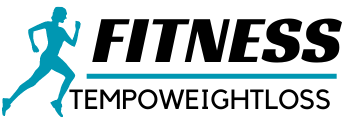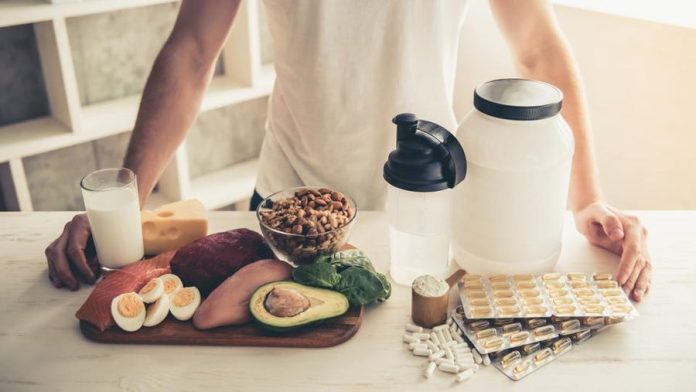Recently, veganism—avoiding all animal products, including eggs, dairy, and honey—is the “panacea” of choice among the glamorous crowd. Gwyneth Paltrow, the queen of celebrity wellness, is unsurprisingly vegan. The same goes for Venus Williams. Beyoncé regularly cuts back on animal products in preparation for concerts to give her more energy and urges her Instagram followers to do the same. We all seem to want a simple almighty thing we can eat (or avoid) to instantly slim, fit, beautiful and wise. Kale, acai berries, alkaline water, gluten-free, anything we’d like to believe.
But some advocates are gushing about the “facts” about veganism and health, leading us to wonder: Is a vegan diet the healthiest way to eat? They claim that the World Health Organization (WHO ) says eating meat is as carcinogenic as smoking. ( That’s not true, nor is the World Health Organization. Or that eating an egg a day contributes as much to heart disease as smoking five cigarettes a day. (Totally exaggerated, read more about eggs and heart disease . These claims will Vegetarianism is portrayed as the only truly healthy diet, and anything else is just slow poison.
Okay, but is vegetarianism really the whole and the end of the diet? Looking at individual claims, you might get confused. Some studies (well, one paper I was able to find) link eggs to increased arterial plaque. But other projects, including a sprawling Chinese study, have shown that eggs can reduce heart disease risk. Science as a whole does a pretty good job of figuring out the world. However, individual studies were often wrong – as much as 40% of the time. If you want to know what science says about issues as diverse as diet and health, you have to look at a lot of science.
So what does a lot of science say about vegetarianism?
Before we answer, let’s pause and acknowledge a few things: First, health isn’t the only reason, or even the main reason, to become a vegan. Ethical and environmental concerns alone can be enough to make one choose a plant-based path. Both topics deserve their own articles, so we won’t discuss them here.
Second, being vegan doesn’t automatically mean you‘re eating well. Nut butter is vegan. Not to mention unfrosted pop-tarts. Even a junk-free vegan diet can cause health problems. When the Academy of Nutrition and Dietetics finally recognized vegetarianism and veganism as healthy eating patterns in 2016, the organization qualified its endorsement by warning that vegetarianism, in particular, can lead to serious nutrient deficiencies. For example, green vegetables contain calcium, but your body can only use about 5 percent of the calcium in spinach, compared to about 30 percent of the calcium in milk. Vegetarians face similar concerns about getting enough iron, omega-3 fatty acids, vitamin D and vitamin B12.
The last one is especially tricky. B12 is almost completely absent from plant foods. Multiple studies have shown that up to 60% of vegetarians are deficient in B12, which, if severe enough, can lead to numbness, poor balance, depression, paranoia, memory loss, urinary incontinence and many other serious problems. And, unfortunately, symptoms may not start to appear until you have been deficient for many years.
Is vegetarianism the best diet?
However, you’re reading a website that promotes healthy eating, so let’s assume you’re doing everything right: taking supplements, getting enough calcium and iron, and eating a balanced vegan diet. Is being a vegetarian the absolute best way to stay healthy, as many people today claim?
Science’s current answers are far from definitive, and not particularly satisfying. Yes, a vegan diet is good for you. It is strongly considered to be one of the best diets, alongside the Mediterranean Diet, Traditional Okinawan Diet, and other ” blue zone ” all-stars (all of which include animal products). But what about the best? or. And it’s unlikely you’ll get a better answer than that anytime soon.
The largest, newest, and most sophisticated review of research on vegetarianism, veganism, and health appeared in the 2017 issue of the journal Critical Reviews in Food Science and Nutrition. The authors identified 86 high-quality studies on vegetarianism and 24 on vegan diets, covering a total of more than 130,000 vegetarians and 15,000 vegetarians.
Results: Compared with omnivores, vegetarians and vegans generally had lower body mass index (BMI), cholesterol and blood sugar. Vegetarians were less likely to be diagnosed with ischemic heart disease (what happens when plaque narrows arteries), and they had an 8 percent lower risk of cancer than omnivores. Vegans reaped all the benefits of vegetarianism, and their cancer risk was 15 percent lower than omnivores. This is all good news.
Here’s the warning: vegetarianism and veganism can protect you from ischemic heart disease, but they don’t seem to offer significant protection against death from ischemic heart disease, complete heart disease, or cancer. The cancer results, while pretty much in line with what scientists think about diet and cancer, are based on just two studies. That’s not enough to get a new drug approved by the FDA; is that alone enough to justify a major life change?
Is it a vegan diet or something else?
Most diet research relies on observation. You bring together a group of people who are already vegetarians and a group of omnivores and track what they eat. It turns out that vegans have better lab tests and less disease. But did vegetarianism cause these effects? This is hard to prove. For example, vegetarians as a group have a lower BMI than the typical American. (Which makes sense. Just try to gain weight on a well-planned vegan diet. A high BMI leads to heart disease, diabetes, and cancer. So which Is it – the lower body weight (which you can achieve without being a vegetarian) or the diet itself? And, if it’s the diet, is it lacking in meat, adding more plants, or both?
“The type of study needed to answer these questions would be a trial in which people were randomly assigned to Mediterranean versus vegan and pescatarian versus vegan, he is the author of the very sensible book The Truth About Food .” And it needs to last a lifetime. Since there are some prenatal effects, a better version of this hypothetical study would be to randomly assign 10,000 pregnant women to follow these different diets. They will be exclusively breastfed and then their babies will take the baton and become participants. It never did, and it never will.
Actually, it doesn’t need to. Of course, there’s still a lot we don’t know about the effects of a vegan diet, a Mediterranean or Okinawan diet, or any of the other contenders. But we do know that all of these seem to be much better than the average American diet today.
Even if a winner emerges, the final ranking may not matter when individual genetic differences, lifestyle choices, or even random external events are taken into account. Picture this: After 100 years of research, we’ve learned that the Okinawan Diet has a 1% lower cancer risk than any other diet. But to get to the local seaweed vendor, you have to cross the most dangerous intersection in town. Is there a net gain?
That said, here’s a vegan benefit you might not have thought of: It’s conceptually simple. You’re not thinking about calories, or whether your stew contains 3 ounces of meat or 6 ounces of meat; you’re just dealing with an Easy-to-understand (though not always easy-to-follow) criteria: Is it plant-based?
So what moved you? Is it possible to reduce disease risk? Do you want to do your part to be kinder to chickens or (maybe) reduce the carbon footprint of farming? You might want to be vegan. But you’re not obeying the science. There’s no guarantee there isn’t a slightly better option, but as of today, no one can conclusively tell you what the better option is, or if it exists.
Good luck if you’re making the switch. sincerely. Don’t let some super-carnivore in-laws lure you into a feud with your next family. Take your B12. This is very important.




